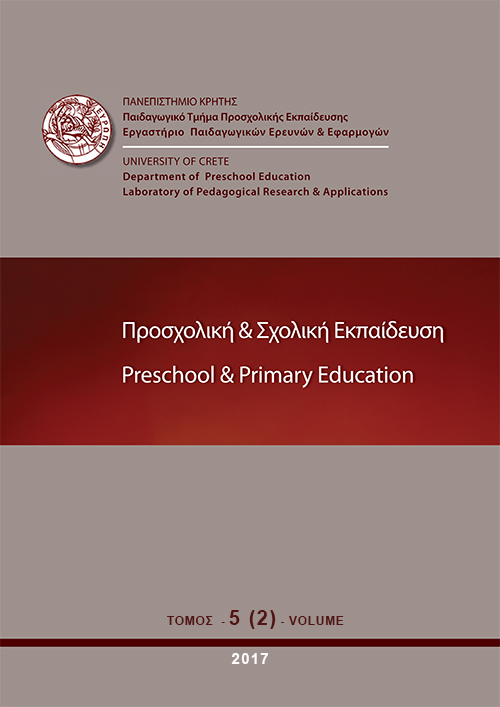Evaluation of Greek Android mobile applications for preschoolers

Abstract
Smart mobile devices are extremely popular among young children compared with other digital devices. International research indicates that these devices can be used as an educational tool with preschoolers, supporting under proper conditions, certain as-pects of teaching and learning. However, children's ability to participate in rich and dy-namic learning environments within and outside the school environment is closely linked to the quality of mobile applications. One of the key issues that have emerged from a re-view of the literature is the low quality of self-proclaimed educational apps. This research, which is the first of its type in Greece, examines whether self-proclaimed educational An-droid apps for Greek preschoolers have been designed in accordance with developmen-tally appropriate practices to contribute to children’s cognitive development within and outside the school environment. A standardized questionnaire, the Rubric for the EValu-ation of Educational Apps for preschool Children (REVEAC) was used as an assessment tool. The analysis showed that only 5% of the sample was in e-storybook form. The re-maining 95% of the apps was of the edutainment game type, i.e. apps which combine en-tertainment activities to achieve their educational goals. Almost all apps were drill-and-practice-type activities. The apps were based on a low level of thinking skills and they did nothing more than promote mechanical learning, a memorization technique which is based on repetition. There were no apps which aimed to develop a learning environment motivating and enabling children to learn. Some applications offered the possibility of coloring predefined shapes, but these in no way can be considered apps aiming at the development of children's creativity through play and learning. The researchers used the results of the REVEAC scale to evaluate whether the apps have been designed in line with child development principles and practices, so as to stimulate children's overall cognitive, emotional, physical and social development. The study results, consistent with the results from international studies, showed that almost all of the apps were not developmentally appropriate, i.e., they are not designed in such a way as to encourage children to use tech-nology to promote their optimal development. Naturally, we cannot isolate children from technology, but we can ensure that they are not harmed in any way by it. With the prolif-eration of smart mobile devices and their accompanying apps, concerns over the content of apps (content matters) have become even more topical. In this context, researchers, ed-ucators and app developers must ensure that apps addressed to young children should be based on a solid theoretical basis and high-quality standards.
Article Details
- How to Cite
-
Papadakis, S., & Kalogiannakis, M. (2017). Evaluation of Greek Android mobile applications for preschoolers. Preschool and Primary Education, 5(2), 65–100. https://doi.org/10.12681/ppej.11208
- Issue
- Vol. 5 No. 2 (2017)
- Section
- Articles

This work is licensed under a Creative Commons Attribution-NonCommercial-ShareAlike 4.0 International License.
Authors who publish with this journal agree to the following terms:
- Authors retain copyright and grant the journal right of first publication with the work simultaneously licensed under a Creative Commons Attribution Non-Commercial License that allows others to share the work with an acknowledgement of the work's authorship and initial publication in this journal.
- Authors are able to enter into separate, additional contractual arrangements for the non-exclusive distribution of the journal's published version of the work (e.g. post it to an institutional repository or publish it in a book), with an acknowledgement of its initial publication in this journal.
- Authors are permitted and encouraged to post their work online (preferably in institutional repositories or on their website) prior to and during the submission process, as it can lead to productive exchanges, as well as earlier and greater citation of published work (See The Effect of Open Access).


